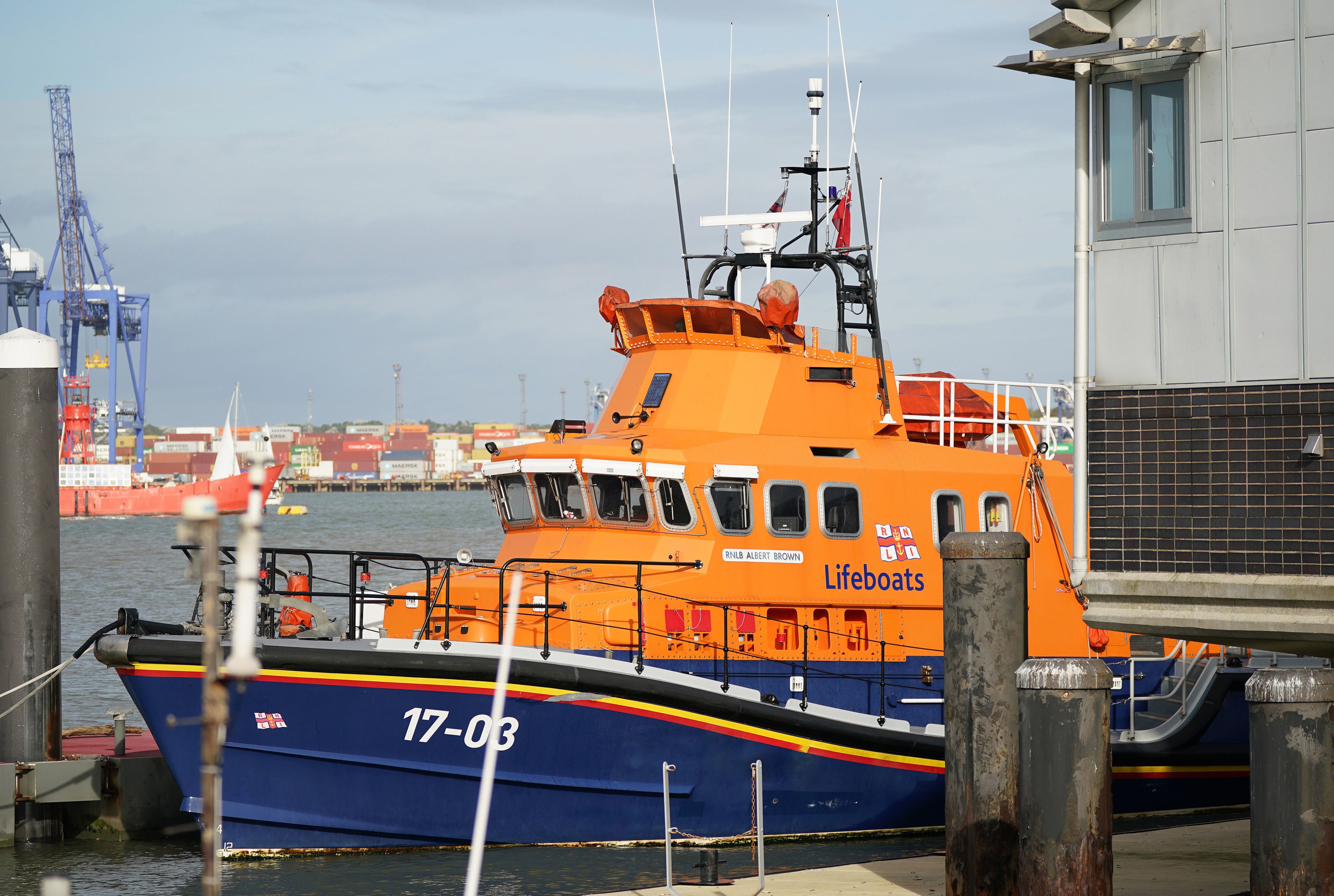Migrant dies after falling from dinghy during crossing to UK
Two men rescued after dinghy incident off coast of Essex

Your support helps us to tell the story
From reproductive rights to climate change to Big Tech, The Independent is on the ground when the story is developing. Whether it's investigating the financials of Elon Musk's pro-Trump PAC or producing our latest documentary, 'The A Word', which shines a light on the American women fighting for reproductive rights, we know how important it is to parse out the facts from the messaging.
At such a critical moment in US history, we need reporters on the ground. Your donation allows us to keep sending journalists to speak to both sides of the story.
The Independent is trusted by Americans across the entire political spectrum. And unlike many other quality news outlets, we choose not to lock Americans out of our reporting and analysis with paywalls. We believe quality journalism should be available to everyone, paid for by those who can afford it.
Your support makes all the difference.A migrant has died after falling from a boat crossing to the UK, the home secretary has said.
An “extensive search” for the man was called off on Tuesday, after two others were rescued.
Priti Patel told a House of Lords committee that the man had died while being questioned on the government’s planned asylum reforms.
“We want to stop people from drowning at sea, only yesterday there was a loss of life,” she said.
The man is one of several people to die while attempting to reach the UK in the past year, including a 16-year-old boy who was killed by a lorry in Calais last month and a migrant who drowned after a dinghy sank in August.
Border Force, Coastguard and RNLI vessels were involved in the search, as well as a helicopter and plane, following an incident on Monday afternoon.
Two Somali men were rescued off the coast of Harwich, in Essex, on Monday and the search for the third man was called off at around 2pm on Tuesday.
A Home Office spokesperson said: “We want to thank those who responded to this incident and who continue to work tirelessly to protect lives at sea whilst securing our border.
”While the investigation into this incident continues, it is a reminder of the extreme dangers of crossing the Channel in small boats and the callous disregard for life shown by the criminal gangs.
“We are determined to do everything we can to prevent people dying in the Channel.”
Enver Solomon, chief executive of the Refugee Council, said: “Tragically, this is not the first time somebody has gone missing attempting the dangerous journey across the seas to Britain in search of safety.
“The sad reality is that unless this government fundamentally changes its approach by committing to an ambitious expansion of safe routes for those in need of protection, the lives of ordinary men, women and children will be at risk of being lost in this way.
“Every day, people are forced to flee their home through no fault of their own and we must do more to make the journey safer.
“This government's cruel and ineffective plans of seeking to punish or push away those who try and find safety in our country must end immediately.”
The home secretary defended the proposals during an evidence session held by the Lords Justice and Home Affairs Committee on Wednesday.
She said she wanted to force boats carrying asylum seekers back to France to “save lives” and insisted that planned operations by the Border Force in the English Channel would not cause people to drown.
Ms Patel said there had been “extensive work” on legal and practical issues around push-backs and that the government would “never do anything to put the safety of people’s lives at risk.
The UK has paid France millions of pounds to increase security along its northern coast and is backing new laws it says will tackle smuggling activity and save lives.
The UN Refugee Agency (UNHCR) has warned that proposals in the Nationality and Borders Bill breach international law and may not work.
The law, which is currently being considered by the House of Lords, would make it a criminal offence to enter Britain without “entry clearance”.
Asylum cannot be sought from outside the UK, and the change would mean refugees reaching the country on small boats and other irregular means face four years in prison.
The bill would also make it easier to prosecute asylum seekers who steer boats, and people who provide humanitarian assistance, for “assisting unlawful immigration”.
A government impact assessment said there was a risk that increased security and deterrence in the Channel could encourage migrants to attempt riskier means of entering the UK, adding: “Evidence supporting the effectiveness of this approach is limited.”


